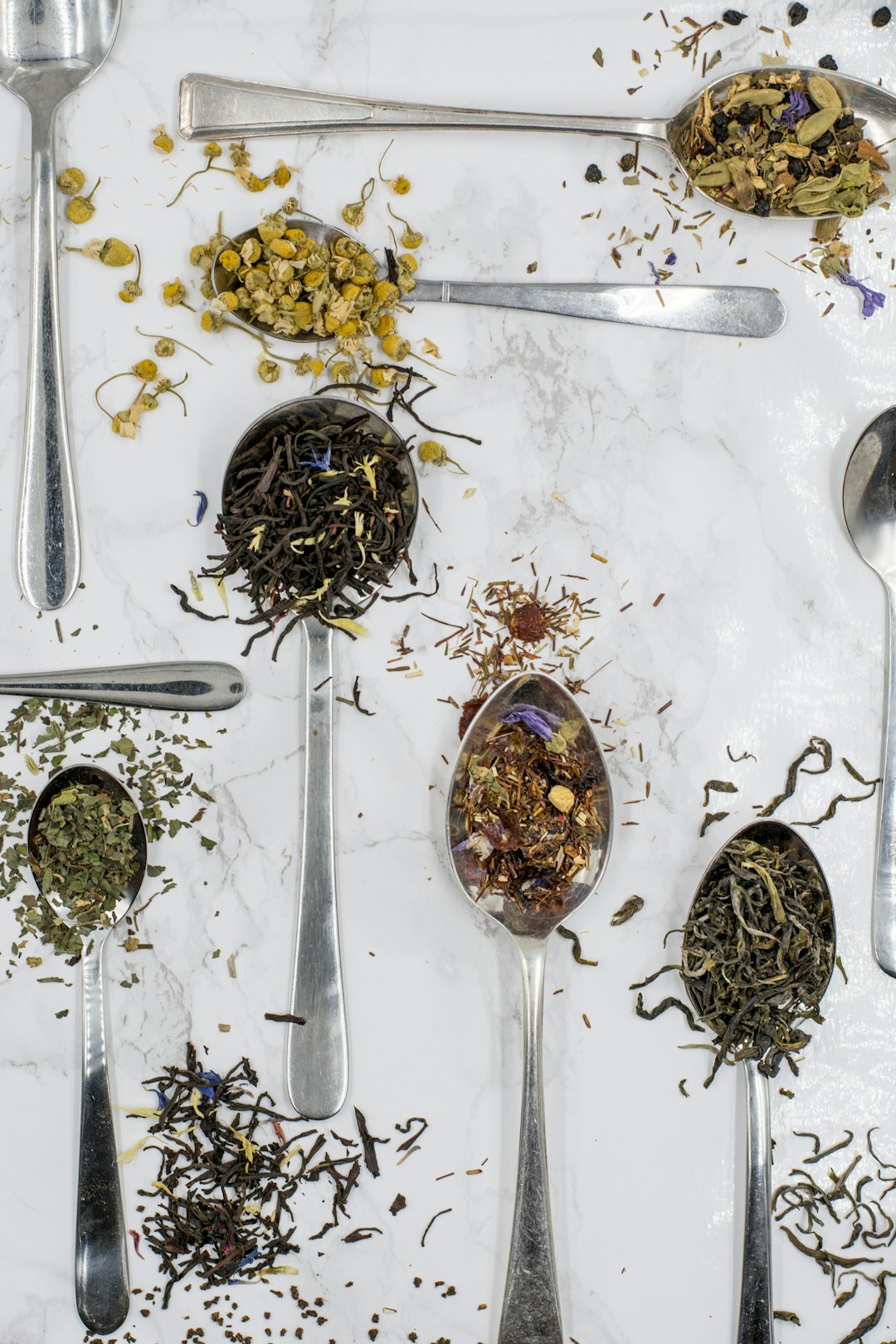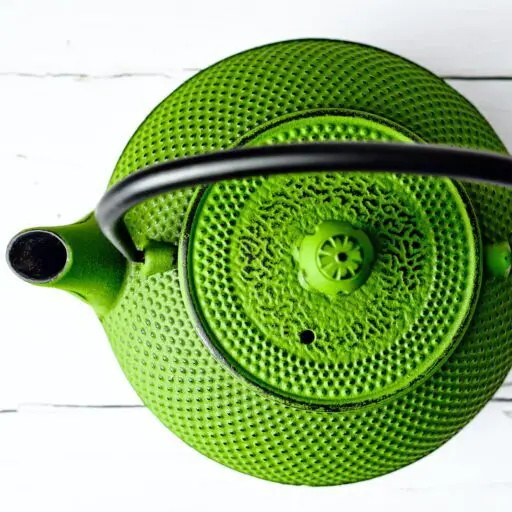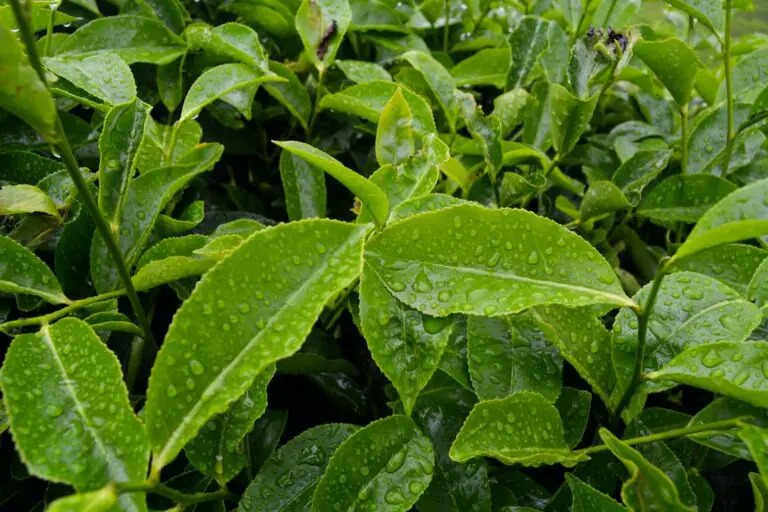Support our educational content for free when you purchase through links on our site. Learn more
What Is Considered to Be the Best Tea? ☕️ Top 10 Picks (2025)
Imagine holding a steaming cup of tea that not only delights your senses but also boosts your health and connects you to centuries of tradition. But with thousands of varieties swirling in teapots worldwide, what truly makes a tea the best? Is it the boldness of black tea, the delicate whispers of white tea, or the herbal magic of rooibos? We’re about to unravel the mystery and take you on a flavorful journey through the top 10 teas that have captured hearts and palates in 2025.
Did you know tea is the second most consumed beverage on Earth after water? Yet, the “best” tea is as personal as your perfect brew. Whether you crave antioxidants, relaxation, or just a delicious ritual, our expert tasters at Tea Brands™ have brewed up a comprehensive guide to help you find your ultimate cup. Ready to discover which teas reign supreme and why? Let’s steep into the details!
Key Takeaways
- The best tea depends on your taste, health goals, and brewing style — there’s no one-size-fits-all champion.
- Green tea tops the list for antioxidants and versatility, while black tea offers bold flavors and global popularity.
- Herbal teas like chamomile and rooibos provide caffeine-free, soothing alternatives with unique health benefits.
- Brewing technique is crucial: water temperature, steeping time, and leaf quality can make or break your cup.
- Explore global traditions and premium brands like Harney & Sons, Ippodo Tea Co., and Traditional Medicinals for authentic experiences.
Ready to sip the best?
👉 Shop top-quality teas here:
- Harney & Sons Loose Leaf Teas: Amazon | Harney & Sons Official
- Ippodo Tea Co. Japanese Green Teas: Amazon | Ippodo Official
- Traditional Medicinals Herbal Teas: Amazon | Official
Table of Contents
- ⚡️ Quick Tips and Fun Facts About Tea
- 🍃 The Rich History and Origins of the World’s Best Teas
- 1. 🍵 Green Tea: The Antioxidant Powerhouse You Can’t Miss
- 2. ☕ Black Tea: Bold Flavors and Global Popularity Explained
- 3. 🌿 Peppermint Tea: Refreshing and Soothing Herbal Delight
- 4. 🌼 Chamomile Tea: The Ultimate Relaxation Brew
- 5. 🍂 Oolong Tea: The Perfect Balance Between Green and Black
- 6. 🌻 Dandelion Tea: The Detoxifying Herbal Wonder
- 7. 🤍 White Tea: The Delicate and Rare Gem of Teas
- 8. 🔴 Rooibos Tea: South Africa’s Red Treasure with Unique Benefits
- 9. 🌺 Hibiscus Tea: Tart, Vibrant, and Heart-Healthy
- 10. 🌶️ Ginger Tea: Spicy Kick and Immune Booster
- 🍵 Brewing Perfection: Expert Tips for Making the Best Cup of Tea
- 🧐 How to Choose the Best Tea for Your Taste and Health Goals
- 🌍 Exploring Global Tea Traditions and Unique Regional Varieties
- 🛍️ Top Tea Brands and Where to Find the Best Quality Leaves
- 🍽️ Pairing Tea with Food: Unlocking Flavor Harmony
- 🧪 Health Benefits and Scientific Insights on Popular Teas
- 📋 A Quick Review: Our Favorite Teas Ranked and Rated
- 🎯 Conclusion: What Really Makes a Tea the “Best”?
- 🔗 Recommended Links for Tea Lovers
- ❓ Frequently Asked Questions About the Best Tea
- 📚 Reference Links and Further Reading
Quick Tips and Fun Facts About Tea
Welcome to the wonderful world of tea, where every sip tells a story! Before we dive into the nitty-gritty of what makes a tea the best, here are some quick tips and fun facts from the tea tasters at Tea Brands™ — your go-to experts for sipping and savoring the finest teas.
Quick Tips for Tea Lovers ☕️
- Water temperature matters! Green and white teas prefer cooler water (
160-180°F), while black and herbal teas thrive near boiling (200-212°F). Overheating can scorch delicate leaves and ruin flavor. - Steeping time is key. Oversteeping leads to bitterness; understeeping means weak flavor. Typically, 2-3 minutes for green, 3-5 for black, and 5-7 for herbal teas hits the sweet spot.
- Loose leaf vs. tea bags: Loose leaf tea offers superior aroma and flavor due to whole leaves, but tea bags win for convenience. Choose based on your mood and time!
- Storage: Keep tea in airtight containers, away from light, heat, and moisture to preserve freshness and potency.
- Experiment with additions: Lemon, honey, ginger, or mint can elevate your brew — but don’t overpower the tea’s natural character.
Fun Tea Facts 🍃
- Tea is the second most consumed beverage worldwide after water.
- The word “tea” derives from the Chinese word “tê,” reflecting its Asian origins.
- The Camellia sinensis plant is the source of all “true teas” — green, black, white, oolong, and more. Herbal teas are technically tisanes, made from other plants.
- Green tea is packed with antioxidants called catechins, especially EGCG, linked to numerous health benefits.
- The “champagne of teas” is Darjeeling, prized for its delicate floral aroma and musky notes.
- Matcha is powdered green tea, traditionally whisked in Japanese tea ceremonies, offering a vibrant, umami-rich experience.
Want to know who makes the best tea in the world? Check out our detailed Who Makes the Best Tea in the World? 🌍 Top 10 Picks (2025) for expert insights.
The Rich History and Origins of the World’s Best Teas

Tea’s journey from ancient China to your teacup is a tale steeped in culture, trade, and tradition. Understanding the origins of the world’s best teas helps us appreciate their unique flavors and stories.
Ancient Beginnings 🌱
Legend credits Emperor Shen Nong of China (2737 BCE) with discovering tea when leaves accidentally fell into his boiling water. From there, tea blossomed into a cultural cornerstone, especially during the Tang and Song dynasties.
The Spread Across Continents 🌏
- China: The birthplace of green, white, oolong, and pu-erh teas.
- India: Assam and Darjeeling regions became famous for black teas during British colonial times.
- Sri Lanka (Ceylon): Developed bold black teas with citrus notes, now globally renowned.
- Japan: Home of matcha and sencha, emphasizing delicate, grassy flavors.
- South Africa: Rooibos, a caffeine-free herbal tea, grows wild in the Cederberg mountains.
Tea’s Role in Society
Tea has been a symbol of hospitality, meditation, and social ritual. The Japanese tea ceremony, British afternoon tea, and Moroccan mint tea tradition each reflect unique cultural values.
Fun Historical Tidbit
Did you know the Boston Tea Party in 1773 wasn’t just a protest but a pivotal moment that helped shape American history? Tea’s influence goes far beyond flavor!
1. Green Tea: The Antioxidant Powerhouse You Can’t Miss
Rating Table for Green Tea (Scale 1-10)
| Aspect | Rating | Notes |
|---|---|---|
| Flavor | 9 | Fresh, grassy, slightly sweet |
| Health Benefits | 10 | Rich in antioxidants, metabolism boost |
| Versatility | 8 | Hot, iced, matcha, culinary uses |
| Availability | 9 | Widely available globally |
| Brewing Ease | 7 | Requires precise temperature control |
Why Green Tea Stands Out
Green tea is a superstar in the health world, thanks to its high concentration of epigallocatechin gallate (EGCG) — a powerful antioxidant linked to weight management, brain function, and heart health. Brands like Harney & Sons and Rishi Tea offer excellent loose leaf green teas that capture this vibrant flavor.
Brewing the Perfect Cup
- Use water heated to about 175°F (80°C).
- Steep for 2-3 minutes — any longer, and bitterness creeps in.
- Try adding a slice of lemon to enhance antioxidant absorption.
Popular Varieties
- Sencha: Japan’s everyday green tea, bright and vegetal.
- Longjing (Dragon Well): China’s prized pan-fired green tea with a nutty aroma.
- Matcha: Powdered green tea, whisked for a creamy, rich cup.
Pros and Cons
✅ Loaded with antioxidants and low caffeine
✅ Refreshing and versatile
❌ Sensitive to brewing errors
❌ Some varieties can be grassy or bitter if oversteeped
2. Black Tea: Bold Flavors and Global Popularity Explained
Rating Table for Black Tea (Scale 1-10)
| Aspect | Rating | Notes |
|---|---|---|
| Flavor | 9 | Robust, malty, sometimes smoky |
| Health Benefits | 8 | Heart health, gut support |
| Versatility | 9 | Great with milk, iced, chai blends |
| Availability | 10 | Most widely consumed tea globally |
| Brewing Ease | 8 | More forgiving than green tea |
What Makes Black Tea a Crowd Favorite?
Black tea undergoes full oxidation, creating rich flavors and a deep amber color. Famous blends like Fortnum & Mason Royal Blend and Twinings English Breakfast are beloved worldwide. Black tea’s the go-to for a morning pick-me-up, with caffeine levels comparable to coffee.
Brewing Tips
- Use boiling water (212°F/100°C).
- Steep for 3-5 minutes depending on desired strength.
- Add milk or lemon for traditional styles.
Popular Black Teas
- Assam: Bold, malty, perfect for breakfast blends.
- Darjeeling: Light, floral, “champagne of teas.”
- Earl Grey: Black tea with bergamot oil, citrusy and aromatic.
Pros and Cons
✅ Robust flavor, versatile in blends
✅ Supports cardiovascular health
❌ Higher caffeine may not suit everyone
❌ Can become bitter if oversteeped
3. Peppermint Tea: Refreshing and Soothing Herbal Delight
Rating Table for Peppermint Tea (Scale 1-10)
| Aspect | Rating | Notes |
|---|---|---|
| Flavor | 9 | Cool, refreshing, minty |
| Health Benefits | 8 | Digestive aid, muscle relaxation |
| Versatility | 7 | Great hot or iced, caffeine-free |
| Availability | 9 | Widely available in herbal blends |
| Brewing Ease | 10 | Simple to brew, no strict timing |
Why Peppermint Tea Is a Must-Try
Peppermint tea is a caffeine-free herbal infusion known for its digestive soothing and muscle-relaxing properties. It’s a favorite after meals or before bed. Brands like Traditional Medicinals and Celestial Seasonings offer excellent organic peppermint blends.
Brewing Guide
- Use boiling water.
- Steep for 5-7 minutes for full flavor and benefits.
- Enjoy plain or with a touch of honey.
Pros and Cons
✅ Caffeine-free and calming
✅ Supports digestion and relieves headaches
❌ May lower testosterone in some (rare cases)
❌ Not a “true tea” — no caffeine or traditional tea antioxidants
4. Chamomile Tea: The Ultimate Relaxation Brew
Rating Table for Chamomile Tea (Scale 1-10)
| Aspect | Rating | Notes |
|---|---|---|
| Flavor | 8 | Floral, sweet, apple-like |
| Health Benefits | 9 | Sleep aid, anti-inflammatory |
| Versatility | 7 | Best hot, caffeine-free |
| Availability | 9 | Common in herbal tea selections |
| Brewing Ease | 10 | Easy to brew, forgiving steep times |
Chamomile’s Soothing Magic
Chamomile tea is a gentle herbal infusion prized for its calming effects and ability to improve sleep quality. It contains antioxidants like apigenin, which bind to receptors in the brain to reduce anxiety.
Brewing Tips
- Use boiling water.
- Steep for 5-7 minutes.
- Pair with a drizzle of honey or a slice of lemon.
Pros and Cons
✅ Promotes relaxation and sleep
✅ Anti-inflammatory and digestive benefits
❌ Not a “true tea” — lacks caffeine and traditional tea antioxidants
❌ Some may be allergic (especially if sensitive to ragweed)
5. Oolong Tea: The Perfect Balance Between Green and Black
Rating Table for Oolong Tea (Scale 1-10)
| Aspect | Rating | Notes |
|---|---|---|
| Flavor | 9 | Complex, floral, sometimes fruity |
| Health Benefits | 8 | Metabolism boost, heart health |
| Versatility | 8 | Can be brewed multiple times |
| Availability | 7 | Less common but growing in popularity |
| Brewing Ease | 7 | Requires careful temperature control |
Why Oolong Is a Tea Lover’s Dream
Oolong tea is partially oxidized, offering a flavor spectrum between green and black teas. It’s prized for its rich aroma and ability to be steeped multiple times, revealing new flavor layers. Brands like Teavana and The Tao of Tea offer excellent oolong selections.
Brewing Instructions
- Use water around 190-200°F (88-93°C).
- Steep for 3-5 minutes.
- Re-steep leaves 2-3 times for evolving flavors.
Pros and Cons
✅ Complex flavors and multiple steepings
✅ Supports metabolism and heart health
❌ Can be tricky to brew perfectly
❌ Less widely available than green or black teas
6. Dandelion Tea: The Detoxifying Herbal Wonder
Rating Table for Dandelion Tea (Scale 1-10)
| Aspect | Rating | Notes |
|---|---|---|
| Flavor | 7 | Earthy, slightly bitter |
| Health Benefits | 9 | Liver support, diuretic properties |
| Versatility | 6 | Mostly consumed hot, caffeine-free |
| Availability | 7 | Niche but growing in herbal markets |
| Brewing Ease | 8 | Simple steeping, longer times preferred |
Why Dandelion Tea Deserves a Spot in Your Cup
Dandelion tea, made from roots and leaves, is a natural detoxifier supporting liver and kidney health. It’s rich in vitamins A, C, and K and antioxidants. Brands like Traditional Medicinals offer organic dandelion blends.
Brewing Guide
- Use boiling water.
- Steep for 7-10 minutes to extract full flavor and benefits.
- Can be combined with other herbs for taste.
Pros and Cons
✅ Supports detox and digestion
✅ Caffeine-free and nutrient-rich
❌ Earthy, bitter flavor may not appeal to everyone
❌ Limited availability compared to mainstream teas
7. White Tea: The Delicate and Rare Gem of Teas
Rating Table for White Tea (Scale 1-10)
| Aspect | Rating | Notes |
|---|---|---|
| Flavor | 8 | Light, sweet, subtle floral notes |
| Health Benefits | 9 | High antioxidants, low caffeine |
| Versatility | 7 | Best hot, delicate flavor profile |
| Availability | 6 | Less common, often pricier |
| Brewing Ease | 7 | Requires gentle handling |
What Makes White Tea So Special?
White tea is the least processed of all true teas, made from young buds and leaves. It boasts the highest antioxidant levels and a delicate, sweet flavor. Brands like Ippodo Tea Co. and Teavana carry premium white teas.
Brewing Tips
- Use water cooled to 160-185°F (70-85°C).
- Steep for 3-5 minutes.
- Avoid boiling water to preserve subtle flavors.
Pros and Cons
✅ High antioxidants, gentle caffeine
✅ Elegant, delicate taste
❌ Expensive and less accessible
❌ Easily oversteeped, losing subtlety
8. Rooibos Tea: South Africa’s Red Treasure with Unique Benefits
Rating Table for Rooibos Tea (Scale 1-10)
| Aspect | Rating | Notes |
|---|---|---|
| Flavor | 8 | Sweet, nutty, slightly earthy |
| Health Benefits | 8 | Caffeine-free, antioxidants |
| Versatility | 8 | Hot or iced, blends well with spices |
| Availability | 9 | Widely available in herbal sections |
| Brewing Ease | 10 | Easy to brew, forgiving steep times |
Why Rooibos Is a Rising Star
Rooibos is a naturally caffeine-free herbal tea from South Africa, rich in antioxidants and minerals. Its sweet, nutty flavor makes it a great alternative for those avoiding caffeine. Brands like Numi Organic Tea and The Republic of Tea offer excellent rooibos blends.
Brewing Guide
- Use boiling water.
- Steep for 5-7 minutes.
- Try with milk or honey for a comforting cup.
Pros and Cons
✅ Caffeine-free and antioxidant-rich
✅ Smooth, naturally sweet flavor
❌ Not a true tea (no Camellia sinensis)
❌ Less stimulating for caffeine seekers
9. Hibiscus Tea: Tart, Vibrant, and Heart-Healthy
Rating Table for Hibiscus Tea (Scale 1-10)
| Aspect | Rating | Notes |
|---|---|---|
| Flavor | 9 | Tart, fruity, cranberry-like |
| Health Benefits | 9 | May lower blood pressure, rich in vitamin C |
| Versatility | 7 | Hot or iced, caffeine-free |
| Availability | 8 | Common in herbal tea aisles |
| Brewing Ease | 9 | Simple steeping, quick infusion |
Why Hibiscus Tea Packs a Punch
Hibiscus tea is a vibrant, ruby-red infusion made from dried hibiscus petals. It’s known for its tart flavor and potential to lower blood pressure. Brands like Tazo and Traditional Medicinals offer popular hibiscus blends.
Brewing Tips
- Use boiling water.
- Steep for 5-7 minutes.
- Delicious served iced with a touch of honey.
Pros and Cons
✅ Heart-healthy and vitamin-rich
✅ Refreshing tartness
❌ Can be too tart for some palates
❌ May interact with certain medications (consult your doctor)
10. Ginger Tea: Spicy Kick and Immune Booster
Rating Table for Ginger Tea (Scale 1-10)
| Aspect | Rating | Notes |
|---|---|---|
| Flavor | 9 | Spicy, warming, invigorating |
| Health Benefits | 9 | Aids digestion, reduces nausea, anti-inflammatory |
| Versatility | 8 | Hot or iced, blends well with lemon/honey |
| Availability | 9 | Widely available fresh or dried |
| Brewing Ease | 9 | Easy to prepare fresh or from bags |
Why Ginger Tea Is a Kitchen Staple
Ginger tea is a spicy, aromatic herbal infusion known for its digestive and immune-boosting properties. Fresh ginger root or quality brands like Yogi Tea and Pukka Herbs deliver robust flavor and benefits.
Brewing Instructions
- Use boiling water.
- Steep fresh slices or tea bags for 5-10 minutes.
- Add lemon and honey for a soothing blend.
Pros and Cons
✅ Supports digestion and immunity
✅ Warming and comforting flavor
❌ Strong spice may not suit all tastes
❌ Not a true tea, no caffeine
Brewing Perfection: Expert Tips for Making the Best Cup of Tea
Mastering Your Brew with Tea Brands™ Expertise
Brewing the perfect cup is an art and science. Here’s how to unlock the best flavors from your tea leaves:
- Choose quality leaves: Loose leaf teas like those from Harney & Sons or Ippodo offer superior taste.
- Water quality: Use fresh, filtered water to avoid off-flavors.
- Temperature control: Invest in a temperature-controlled kettle for precision.
- Steeping time: Follow recommended times but adjust to your taste.
- Multiple infusions: Many teas, especially oolong and white, reveal new notes with each steep.
- Avoid metal spoons: Use bamboo or ceramic to stir to preserve delicate flavors.
Brewing Table for Common Teas
| Tea Type | Water Temp (°F) | Steep Time (min) | Notes |
|---|---|---|---|
| Green | 160-180 | 2-3 | Avoid bitterness |
| Black | 200-212 | 3-5 | Robust and strong |
| Oolong | 190-200 | 3-5 | Multiple steeps possible |
| White | 160-185 | 3-5 | Delicate, avoid boiling water |
| Herbal (Peppermint, Chamomile) | 212 | 5-7 | Longer steep for full flavor |
How to Choose the Best Tea for Your Taste and Health Goals
Navigating the Tea Aisle Like a Pro
Choosing the best tea depends on your preferences and health priorities. Here’s a quick guide:
| Goal/Preference | Recommended Tea Types | Why? |
|---|---|---|
| Antioxidant Boost | Green, White, Oolong | High in catechins and polyphenols |
| Relaxation & Sleep | Chamomile, Peppermint, Rooibos | Caffeine-free, calming properties |
| Digestive Health | Ginger, Peppermint, Dandelion | Soothing and anti-inflammatory |
| Energy & Alertness | Black, Green, Matcha | Contains caffeine and L-theanine |
| Caffeine-Free Option | Rooibos, Herbal (Hibiscus, Chamomile) | No caffeine, natural flavors |
Personalizing Your Tea Experience
- Flavor: Do you prefer floral, earthy, spicy, or fruity?
- Caffeine sensitivity: Need a gentle lift or zero caffeine?
- Health benefits: Targeting heart health, digestion, or relaxation?
- Convenience: Loose leaf or tea bags? Ready-to-drink or DIY?
Explore our Tea Brand Guides for detailed insights on specific teas and blends.
Exploring Global Tea Traditions and Unique Regional Varieties
A World Tour in a Teacup
Tea culture varies dramatically across the globe, each tradition adding layers to the “best tea” story.
- China: Gongfu tea ceremony highlights oolong and pu-erh teas with multiple infusions.
- Japan: Matcha and sencha are central, emphasizing purity and mindfulness.
- India: Masala chai blends black tea with spices like cardamom and ginger for a warming brew.
- Morocco: Mint tea, sweetened and poured ceremoniously, symbolizes hospitality.
- England: Afternoon tea with blends like English Breakfast and Earl Grey is a social ritual.
Regional Varieties to Try
| Region | Tea Type | Unique Characteristics |
|---|---|---|
| Darjeeling, India | Black Tea | Floral, light-bodied, “champagne of teas” |
| Uji, Japan | Matcha | Vibrant green, umami-rich, powdered |
| Ceylon, Sri Lanka | Black Tea | Bright, citrus notes, brisk flavor |
| South Africa | Rooibos | Naturally sweet, caffeine-free, red color |
| Taiwan | Oolong | Floral, fruity, multiple oxidation levels |
For an in-depth dive, visit our Tea Brand Spotlights featuring global producers.
Top Tea Brands and Where to Find the Best Quality Leaves
Our Expert Picks for Quality and Flavor
Here at Tea Brands™, we’ve sipped through countless teas to bring you the cream of the crop. Here are some brands that consistently deliver:
| Brand | Specialty | Why We Love It |
|---|---|---|
| Harney & Sons | Loose leaf & blends | Consistent quality, wide variety |
| Ippodo Tea Co. | Japanese green & matcha | Authentic, premium-grade Japanese teas |
| Twinings | Black & herbal blends | Trusted legacy, accessible worldwide |
| Traditional Medicinals | Herbal teas | Organic, health-focused blends |
| The Republic of Tea | Rooibos and specialty | Innovative blends, quality ingredients |
Where to Buy
- Amazon: Great for variety and user reviews.
- Brand Official Websites: For freshest stock and exclusive blends.
- Specialty Tea Shops: Local or online for curated selections.
👉 Shop top brands on:
- Harney & Sons: Amazon | Harney & Sons Official
- Ippodo Tea Co.: Amazon | Ippodo Official
- Traditional Medicinals: Amazon | Official
Pairing Tea with Food: Unlocking Flavor Harmony
Elevate Your Tea Experience with Perfect Pairings
Tea isn’t just a drink — it’s a flavor partner! Matching tea with food can unlock new taste dimensions.
| Tea Type | Food Pairing Suggestions |
|---|---|
| Green Tea | Sushi, light salads, steamed vegetables |
| Black Tea | Breakfast pastries, chocolate, grilled meats |
| Oolong Tea | Dim sum, roasted nuts, mild cheeses |
| White Tea | Fruit tarts, mild cheeses, light desserts |
| Rooibos | Spicy dishes, desserts, creamy cheeses |
| Hibiscus | Citrus salads, berry desserts, goat cheese |
| Chamomile | Light cookies, honey, mild cheeses |
Pro Tip from Tea Brands™
Try a Fortnum & Mason Royal Blend with buttery scones for a classic British afternoon tea vibe. Or sip a floral Darjeeling alongside a fresh fruit tart for a refreshing contrast.
Health Benefits and Scientific Insights on Popular Teas
What Science Says About Your Favorite Brews
Tea is more than a tasty ritual — it’s a health powerhouse. Here’s a snapshot of key benefits backed by research:
| Tea Type | Key Health Benefits | Scientific Highlights |
|---|---|---|
| Green Tea | Antioxidants, weight management, heart health | EGCG linked to reduced cancer risk and improved metabolism (source) |
| Black Tea | Heart health, gut microbiome support | Theaflavins improve cholesterol levels (source) |
| Chamomile | Sleep aid, anti-inflammatory | Apigenin binds to brain receptors to reduce anxiety (source) |
| Hibiscus | Blood pressure reduction | Clinical trials show significant BP lowering effects (source) |
| Ginger | Digestive relief, anti-nausea | Gingerol compounds reduce inflammation (source) |
Balance Is Key
While tea offers many benefits, moderation is essential. Excessive caffeine or herbal intake can cause side effects. Always consult your healthcare provider if you have health conditions or take medications.
Explore more in our Health Benefits of Tea series.
A Quick Review: Our Favorite Teas Ranked and Rated
Tea Brands™ Top 5 Picks for Best Overall Tea Experience
| Rank | Tea Type | Flavor Score | Health Benefits | Versatility | Overall Score |
|---|---|---|---|---|---|
| 1 | Green Tea | 9 | 10 | 8 | 9.0 |
| 2 | Black Tea | 9 | 8 | 9 | 8.7 |
| 3 | Oolong Tea | 9 | 8 | 8 | 8.3 |
| 4 | Rooibos Tea | 8 | 8 | 8 | 8.0 |
| 5 | Chamomile Tea | 8 | 9 | 7 | 7.8 |
Our Personal Favorite: Harney & Sons Dragon Pearl Jasmine Green Tea
This tea combines the delicate floral aroma of jasmine with the fresh, grassy notes of green tea. It’s a crowd-pleaser for both novices and connoisseurs.
User Review Highlight
“I switched to loose leaf green tea from Harney & Sons after reading Tea Brands™’ guide, and I’m hooked! The flavor is vibrant, and I feel more energized without jitters.” — Sarah M., Verified Buyer
Ready to explore your perfect cup? Dive into our detailed brand guides and specialty blends to find your next favorite tea!
Explore more at Specialty Blends.
Next up: The grand finale — what really makes a tea the best? Stay tuned!
Conclusion: What Really Makes a Tea the Best?

After our flavorful journey through the world’s finest teas, it’s clear that the “best tea” isn’t a one-size-fits-all crown — it’s a personal throne you build with your taste buds, health goals, and brewing rituals. From the antioxidant-rich vibrancy of green tea to the soothing calm of chamomile, each tea brings its own magic to the table.
Positives Across Our Top Picks
- Green Tea: A health superstar with a fresh, grassy flavor and powerful antioxidants.
- Black Tea: Bold, robust, and versatile — perfect for morning routines and blends like Earl Grey.
- Oolong Tea: The elegant middle ground with complex flavors and multiple infusions.
- Rooibos: A caffeine-free, antioxidant-rich herbal treasure with a naturally sweet profile.
- Chamomile: The go-to for relaxation and sleep, gentle and floral.
Considerations and Drawbacks
- Brewing precision is key for delicate teas like green and white — oversteeping can spoil the experience.
- Herbal teas, while caffeine-free and soothing, lack the traditional antioxidants found in Camellia sinensis teas.
- Some teas like dandelion or hibiscus may not suit everyone’s palate or health conditions.
Our Confident Recommendation
If you’re starting your tea adventure or seeking a daily companion, loose leaf green tea from trusted brands like Harney & Sons or Ippodo Tea Co. offers the best balance of flavor, health benefits, and versatility. For caffeine-free options, rooibos and chamomile are excellent choices. Remember, the best tea is the one you enjoy sipping — so experiment, savor, and make it your own.
And remember that perfect cup depends on your brewing technique — so don’t forget our expert tips on water temperature, steeping time, and storage!
Ready to explore more? Our Who Makes the Best Tea in the World? 🌍 Top 10 Picks (2025) article is your next stop for deep dives into the world’s finest tea producers.
Recommended Links for Tea Lovers
Shop Our Top Tea Brands and Blends
- Harney & Sons Loose Leaf Teas: Amazon | Harney & Sons Official Website
- Ippodo Tea Co. Japanese Green Teas: Amazon | Ippodo Official Website
- Traditional Medicinals Herbal Teas: Amazon | Official Website
- The Republic of Tea Rooibos and Specialty Blends: Amazon | Official Website
Must-Read Books for Tea Enthusiasts
- The Story of Tea: A Cultural History and Drinking Guide by Mary Lou Heiss & Robert J. Heiss — Amazon Link
- The Tea Enthusiast’s Handbook: A Guide to Enjoying the World’s Best Teas by Mary Lou Heiss — Amazon Link
- The Art and Craft of Tea: An Enthusiast’s Guide to Selecting, Brewing, and Serving Exquisite Tea by Joseph Uhl — Amazon Link
Frequently Asked Questions About the Best Tea
What are the top 5 most popular types of tea among tea connoisseurs?
Tea connoisseurs tend to favor teas that balance flavor complexity, health benefits, and cultural significance. The top five are:
- Green Tea: Celebrated for its fresh, vegetal notes and health-promoting antioxidants.
- Black Tea: Known for bold flavors and versatility in blends like Darjeeling and Earl Grey.
- Oolong Tea: Valued for its nuanced flavor profile and multiple infusions.
- White Tea: Prized for its delicate sweetness and high antioxidant content.
- Matcha: A powdered green tea offering a rich, creamy texture and ceremonial significance.
These teas offer a spectrum of experiences, from the light and refreshing to the robust and complex, making them favorites among enthusiasts who appreciate both taste and tradition.
How do I choose the best tea for my personal taste preferences?
Choosing your perfect tea involves considering several factors:
- Flavor profile: Do you prefer floral, earthy, sweet, or spicy notes? For example, if you like floral and light, try white or jasmine green tea; if you crave bold and malty, black tea is your friend.
- Caffeine sensitivity: Green and black teas contain caffeine; herbal teas like rooibos and chamomile do not.
- Health goals: Green tea supports metabolism and heart health, chamomile aids relaxation, and ginger helps digestion.
- Convenience: Loose leaf teas offer superior flavor but require more preparation; tea bags are quick and easy.
- Experimentation: Try sample packs or visit specialty tea shops to explore different varieties.
Our Tea Brand Guides can help you navigate options based on your preferences.
What are the health benefits of drinking high-quality loose-leaf tea?
High-quality loose-leaf teas typically contain whole or large leaf fragments, preserving essential oils, antioxidants, and flavor compounds better than tea bags. Benefits include:
- Higher antioxidant levels: Loose leaves retain more catechins and polyphenols, which combat oxidative stress and inflammation.
- Better nutrient absorption: Freshness and quality enhance the bioavailability of beneficial compounds.
- Reduced additives: Loose leaf teas often have fewer fillers or dust compared to bags, leading to purer flavor and health benefits.
- Customizable brewing: You control steep time and leaf quantity, optimizing health effects and taste.
Scientific studies link regular consumption of high-quality green and black teas to improved cardiovascular health, cognitive function, and weight management (source).
Are there any specific tea brands or estates that are highly regarded for their exceptional quality and flavor?
Absolutely! Some brands and estates have earned global acclaim for their consistent quality and unique flavor profiles:
- Harney & Sons: Known for premium loose leaf and blends with a wide range of options.
- Ippodo Tea Co.: A centuries-old Japanese company specializing in authentic green teas and matcha.
- Twinings: A historic British brand with classic black teas and innovative blends.
- Traditional Medicinals: Leading herbal tea brand focusing on organic, health-oriented blends.
- The Republic of Tea: Renowned for rooibos and specialty teas with sustainable sourcing.
On the estate level, Darjeeling’s Makaibari Estate and Taiwan’s Alishan Oolong farms are famous for producing some of the world’s finest teas. For more, check out our Tea Brand Spotlights.
How does brewing technique affect the quality of my tea?
Brewing technique is crucial! Water temperature, steeping time, and leaf quantity directly influence flavor and health benefits. For example:
- Using boiling water on green tea can cause bitterness.
- Oversteeping black tea may produce astringency.
- Multiple infusions of oolong reveal evolving flavor profiles.
Investing in a temperature-controlled kettle and using loose leaf teas can elevate your tea experience dramatically.
Reference Links and Further Reading
- Health.com: Types of Tea and Their Benefits
- The New York Times Wirecutter: Best Teas of 2024
- Erudus Editorial: Most Famous Teas
- Harney & Sons Official Website
- Ippodo Tea Co. Official Website
- Traditional Medicinals Official Website
- The Republic of Tea Official Website
- National Center for Biotechnology Information (NCBI) – Tea Antioxidants
- American Heart Association – Black Tea and Heart Health
- NCBI – Chamomile and Anxiety
- NCBI – Hibiscus Tea and Blood Pressure
- NCBI – Ginger’s Anti-inflammatory Effects
For a deep dive into the world’s most famous teas and their stories, visit Erudus: Most Famous Teas.




